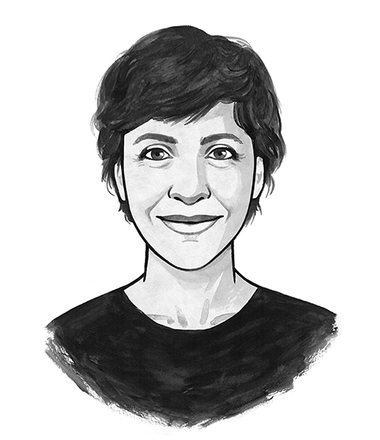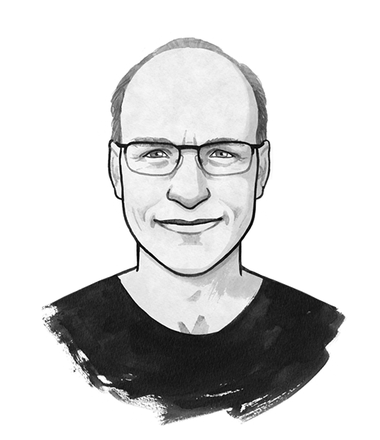How can countries come together on the most divisive issues?
One startling example comes from Ireland, which lifted its de facto abortion ban on 1 January 2019 after a citizens’ assembly and referendum backed radical change. The predominantly Catholic country – its people generally neither as devout as they once were nor very trusting of their politicians – surprised many with the outcome.
So was Ireland’s deadlock-breaking approach a fluke or did it find a formula for bringing people closer on difficult questions?
What tools do you use to foster positive change on a topic as polarising as, for example, women’s reproductive rights and abortion? Ireland’s then Taoiseach Leo Varadkar, a son of immigrants and who is openly gay, changed his mind in favour of lifting the ban after hearing individual women’s stories.
This hugely polarising question of abortion raises intriguing political ironies. Not least is how in the United States, many conservatives will vaunt the defence of individual freedoms versus being nannied by the state, but not the rights of women and girls over their bodies.
In Argentina, a grassroots movement has put the legalisation of abortion on the political agenda – taking big steps towards changing the law. Yet the issue is now more polarising than ever. Right-wing leaders in countries such as Poland have taken advantage of the coronavirus crisis to restrict reproductive rights.
For the next transnational chat at The Correspondent, we will be inviting guests from around the world to look at how this toughest of questions marries ideas from political literacy with those of the first 1,000 days.
If political literacy starts with awareness of our identities, could anything be more political than the moment of conception and what happens next? Who should choose if, and when, to start another human’s first 1,000 days? How best might we handle peacefully the politics of birth?
Join us for this 30 minute chat, to be held (also International Safe Abortion Day), below this announcement.
We encourage you, if you have time, to watch this 17-minute film on the Irish citizens’ assembly on abortion, in advance here.
Confirmed guests:
Rosebell Kagumire
Rosebell is a writer and campaigner from Uganda. She currently curates and edits AfricanFeminism.com, a pan-African feminist digital platform and collaborative writing project bringing on board at least one feminist voice from each country on the African continent. Rosebell studied mass communication at Makerere University and non-violent conflict at the Fletcher School of Law and Diplomacy, Tufts University, as well as media, peace and conflict studies at the United Nations mandated University for Peace in Costa Rica. (@RosebellK)
Jo Berry
Jo is founder of Building Bridges for Peace, and has been working in the field of peace and conflict transformation since her father was killed in a terrorist attack in 1984. Her unique work of dialoguing for the last 20 years with the man responsible for planting the bomb has been the subject of much research and documentaries. Jo advocates that unbounded empathy is the biggest weapon we have to end conflict. She works around the world to encourage people to stop demonising and see humanity in all. (@JoBerry9, @Charity_BBFP)
Dione Mabunda
Dione is a lawyer and human rights activist from Mozambique who joins our chat to share her lived experience of women’s reproductive rights treatment, where she says she found "a shocking reality. My country is secular, but abortion is taboo. and it is only legal under certain circumstances according to the Penal Code".
Megan Clement
Megan is a reporter and editor who specialises in human rights, migration, social policy and urban affairs with a particular focus on women’s and reproductive rights. She has recently reported on abortion access in Poland, Malta and Australia and femicide in France. From 2017-2018 she was editor of News Deeply’s various women’s rights platforms, commissioning and editing articles on gender issues in the Global South. (@MegClement)
Sabrina A Cartabia Groba
Sabrina is a feminist lawyer from Argentina who has worked in women’s rights in fields such as justice, reproductive and non-reproductive rights, public policies and communication since 2009. She is an activist for access to safe abortion, a part of the NGO Red de Mujeres, and an associated researcher at the Torcuato Di Tella University in Argentina. In 2018, Sabrina was the first person from Argentina to be recognised by Time Magazine as a next generation leader. (@missoprostol)
Aklile Solomon Abate
Aklile is a human rights law professional with a focus on women’s rights, civil society and movement building. She is one of the founders of the Yellow Movement, a youth-led feminist initiative in Ethiopia that works to bring gender equality through strategic engagements that are creative, and youth driven. Currently, she supports the movement through mentorship, program designs, partnerships. (@aklile_solomon, @YellowMvt)
Liliana Religa
Liliana is a feminist activist from Poland and co-author of various publications on reproductive health and rights. She coordinates communications and projects at the Federation for Women and Family Planning from Poland, which is the oldest such organisation with this focus for the last 30 years. (@federapl)
Renee Bracey Sherman
Renee is a reproductive justice activist, abortion storyteller, strategist, and writer. She is the founder and executive director of We Testify, an organisation dedicated to the leadership and representation of people who have abortions and share their stories at the intersection of race, class, and gender identity. She is also executive producer of Ours to Tell, an award-winning documentary elevating the voices of people who’ve had abortions. (@RBraceySherman, @abortionstories)
Paul Vittles
Paul is a British researcher specialising in the fields of community engagement, participatory democracy, and facilitating transformational change. He helped establish a national framework for optimal workplace mental health in Australia, and national plans for suicide prevention. (@PaulVittles)
Ann Kay Holland
Ann is a feminist, writer, podcaster, gender rights specialist and the co-founder of Sistah Sistah Foundation, a Zambian NGO that works with underprivileged children and women. Her work focuses on sexual and reproductive health and rights. She offers classes on feminism, sex education, rape culture and runs an End Period Poverty campaign in Zambia, that focuses on helping girls attain free menstrual products. She co-hosts a sexual liberation podcast for African women called Casting With The Feminist Witches. She is also an advisory committee member of the FRIDA Fund and a Girl Talk ambassador in Zambia. (@DonCorleAnn, @SistahSistahFo1)
Una Mullally
Una is a journalist, broadcaster, screenwriter and author from Dublin, Ireland. She co-founded and co-presented the number one Irish podcast Don’t Stop Repealin’ for the duration of the Irish abortion referendum campaign in 2018. She currently co-hosts the podcast United Ireland, which gives local issues a global context and avoids "debate" or traditional polarised current affairs broadcasting frameworks. She is the author of In The Name Of Love (2014), an oral history of the marriage equality movement in Ireland, and the editor of the anthology Repeal the 8th (2018). (@unamulally)
Mageda Esolyo
Mageda works at the Women’s Global Network for Reproductive Rights in Kenya. She is a trained psychologist who is passionate about women and girl’s health, in particular sexual reproductive health and rights, development and equality in society. (@MagedaEsolyo, @WGNRR )
Amanda Marufu
Amanda is an entrepreneur, TV producer, blogger, author & feminist activist, and co-founder of EdTech Company SMBLO & Visual Sensation, a media company aimed at spreading awareness and positivity through media. She is a global ambassador of the Better Tomorrow movement, and focuses on providing sustainable solutions for communities. (@MandyTait52)
Miki Kashtan
Miki explores the application of the principles and tools of Nonviolent Communication (NVC) to social transformation, towards rapid empowerment in service of the whole. In her work with organisations, she focuses on systems and processes that make possible solutions that work for everyone. She blogs at The Fearless Heart and has authored three books. She invites readers and participants to grapple with the most difficult challenges we are facing, individually and collectively, to be able to lead lives of meaning and integrity, even joy, in perilous times. (@MikiKashtan)
Primah Kwagala
Primah is an advocate for legal reform of reproductive health and women’s rights in the East African region, working in particular to challenge Uganda’s archaic legal systems. She founded the Women’s ProBono Initiative, an organisation that’s uses legal tools including litigation to promote reproductive justice for women and girls in Uganda . She has worked and collaborated with colleagues in human rights at Columbia University and the Aspen Institute in the US. (@primahkwagala, @womenprobono)
Things to keep in mind
Can’t join at the set time? You can already post any questions or comments you have in the conversation section below. If you’re sharing information, please try to share facts – be it from your own first-hand experience, or from an expert source. If you’re not sure whether the source is trustworthy, please consider reframing your contribution as a question – “is this correct?”, rather than “this is correct”. For more on member expectations during transnational conversations, please see our guidelines.
Bookmark this article to join the conversation. Please remember to refresh the page to see the latest contributions.
If you have professional or personal experience in the realm of reproductive rights and would like to be involved – or would like to recommend others – do let us know via email: nabeelah@thecorrespondent.com.
We want everyone to benefit from our journalism. The conversation space remains private due to privacy reasons for our existing members.




